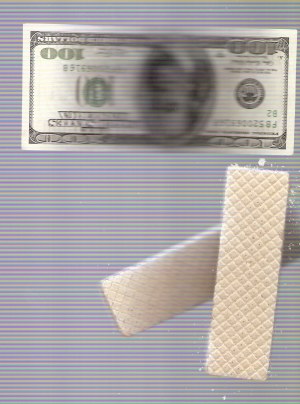 WITHOUT a medium of exchange, the economic world of today would have been impossible. There is at least this one fact in monetary history, concerning which there is no disagreement. "The degree of specialization which characterizes modern industry," says Henry Clay, "could never have been reached under a system of barter. It is too minute, too complicated, too extensive both in time and space." The substitution of money payments for labor dues, says H. R. Seager, "probably did more than anything else to break down the medieval, and usher in the modern, system of industry." E. R. A. Seligman concludes that money is "the foundation upon which modern economic life rests." Indeed, there is not much to add to the generally accepted views concerning the part that money, on account of its convenience, has played in facilitating the division of labor, the exchange of goods, the collection of taxes, and, consequently, the growth of nations -- that is to say, in making possible the extremely complicated economic world of today. WITHOUT a medium of exchange, the economic world of today would have been impossible. There is at least this one fact in monetary history, concerning which there is no disagreement. "The degree of specialization which characterizes modern industry," says Henry Clay, "could never have been reached under a system of barter. It is too minute, too complicated, too extensive both in time and space." The substitution of money payments for labor dues, says H. R. Seager, "probably did more than anything else to break down the medieval, and usher in the modern, system of industry." E. R. A. Seligman concludes that money is "the foundation upon which modern economic life rests." Indeed, there is not much to add to the generally accepted views concerning the part that money, on account of its convenience, has played in facilitating the division of labor, the exchange of goods, the collection of taxes, and, consequently, the growth of nations -- that is to say, in making possible the extremely complicated economic world of today.
 Economic Welfare requires a Medium of Exchange
Among those who admit all this, however, are many who see nothing to admire in the achievement. They feel as the outraged Dr. Johnson felt when called upon to praise the rendition, by a young pianist, of a composition said to be exceedingly difficult. "Difficult?" he exclaimed, "Difficult? Would to God it were impossible!" And some of those who to-day contemplate the periodical breakdown of our vast, complicated economic machinery, and the resultant suffering of those who would gladly labor but can find no work, wish that the whole elaborate and difficult achievement had been impossible. They would gladly overthrow it. And seeing that money is, in fact, its foundation, they believe in going to the bottom of the matter and utterly destroying money.
 Lenin, who has had the most dramatic opportunity in all history for putting this belief into practice, is said to have remarked that the surest way to overthrow the entire economic system is to destroy its currency. Results in Russia seem to show that Lenin is not far from right. But they show much more. They show that, while the demoralization of the medium of exchange prevents large-scale industrial operations and the growth of vast individual fortunes, it also prevents a high per capita production of wealth without which a high standard of living for all the people is impossible. Indeed, to many millions the destruction of all currency would inevitably mean death by starvation. Consequently, even Bolshevistic Russia has felt the necessity, in the interests of the people, of trying to establish a metallic currency which looks very much like the currency of the hated Czars. The world, no doubt, would be saved from further ill-fated attempts to build a better industrial order on the ruins of money, if the truth could be broadcast that it is not autocracy, or capitalism, or the unequal distribution of wealth that re-quires a medium of exchange, but the growth of nations and the general economic well-being of humanity.
 The Growth of Nations depends on a Medium of Exchange
A little thought will show that national life, as we know it, and the powerful government that it presupposes, came into being -- and could come into being --only after it was possible to use a medium of exchange in the collection of taxes. "The system of barter," says R. H. Patterson, "which includes contributions to the State of man service, usually military service, and which had sufficed for the forays and rude conflicts of limited scope which prevailed during the Dark Ages, was wholly inadequate for the organized warfare and expeditions of disciplined and well-equipped troops, by which national or kingly ambition gradually brought Europe to a territorial settlement and comparatively stable equilibrium of national power." In short, the organization of the administrative functions of a State never has gone far, and it is difficult to conceive how it could go far, supported only by payments in kind.
|